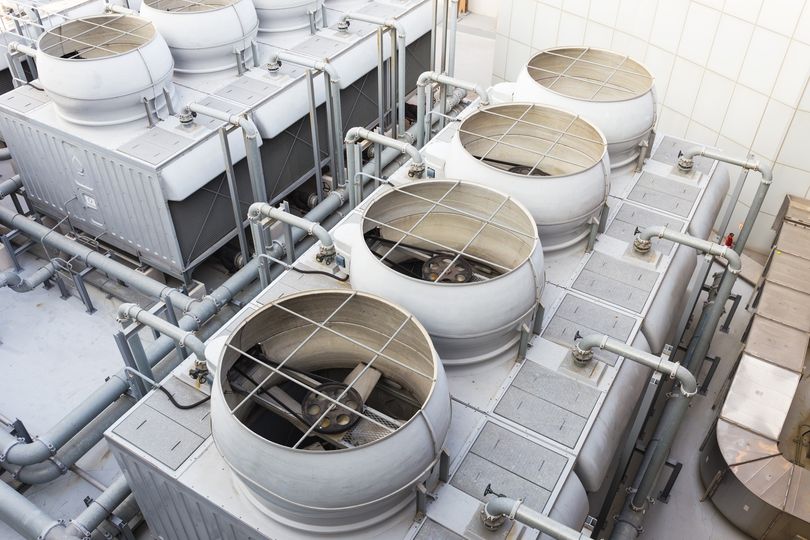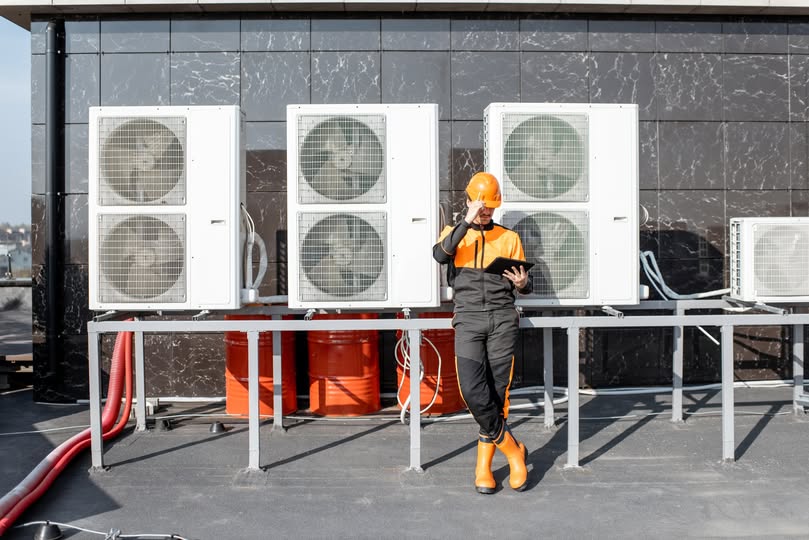Cooling towers are engineering marvels designed to tackle a common challenge in industrial processes and HVAC systems: excess heat. These specialized heat exchangers play a vital role in maintaining temperature control and system efficiency. Let's dive into what cooling towers are, why concerns can arise, the issues they solve, and the many advantages they offer.
What Is a Cooling Tower?
A cooling tower is a heat exchanger that efficiently removes excess heat from water used in various industrial processes and HVAC (Heating, Ventilation, and Air Conditioning) systems. It achieves this by facilitating heat transfer through the mechanisms of evaporation and conduction.
Why Concerns Can Arise:
Concerns related to cooling towers typically revolve around their performance, maintenance, and environmental impact. Over time, these towers can accumulate scale, sediment, and biological growth, leading to reduced efficiency and increased operating costs. Moreover, poorly maintained cooling towers can pose health and environmental risks due to the potential for the growth of harmful microorganisms, like Legionella bacteria.
Issues Cooling Towers Solve:
Temperature Control: They remove excess heat from industrial processes, preventing equipment overheating and ensuring optimal operating conditions.
Energy Efficiency: By dissipating heat, cooling towers help reduce energy consumption and greenhouse gas emissions in HVAC systems.
Cost Savings: Efficient cooling tower operation leads to cost savings through reduced energy usage and extended equipment lifespan.
Environmental Impact: Cooling towers contribute to a greener environment by minimizing the environmental footprint of HVAC systems.
The Pros of Cooling Towers:
Efficient Heat Removal: Cooling towers excel at efficiently transferring heat from water to the surrounding air through evaporation, maintaining system efficiency.
Energy Savings: Reduced energy consumption translates into lower operational costs and a smaller environmental footprint.
Longevity: Properly maintained cooling towers can have a long lifespan, providing reliable temperature control for years.
Environmental Benefits: Cooling towers play a role in reducing the overall energy consumption of industrial processes and HVAC systems, contributing to a more sustainable future.
At A-Plus Quality, our professional and highly skilled team understands the critical role cooling towers play in various industries. We offer expert maintenance and servicing to ensure your cooling towers operate at peak efficiency while addressing any concerns that may arise.



